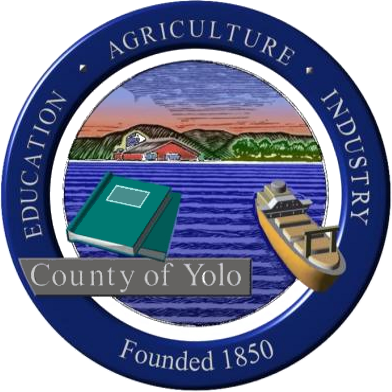
Yolo County
Yolo County, officially the County of Yolo, is a county located in the northern portion of the U.S. state of California. As of the 2020 census, its population was 216,403. Its county seat is Woodland.
Executive Director: Lori Banales
Phone: 916-978-6400
TTY: 916-489-4241
Fax: 916-489-1033
Early Start Intake: 916-978-6249
Address: 4151 E Commerce Way, Suite 100 Sacramento, CA 95815
Counties Served: Alpine, Colusa, El Dorado, Nevada, Placer, Sacramento, Sierra, Sutter, Yolo, and Yuba counties
Implementation of Part C of the Individuals with Disabilities Education Act mandates states to implement a comprehensive early intervention service system for all infants and toddlers with disabilities or at risk, and their families. Family support services are included in these systems.
In California, Early Start Family Resource Centers are part of the Early Start Program. Staffed by families of children with special needs, family resource centers offer parent-to-parent support and help parents, families, and children locate and use needed services. They offer support services and resources in many languages, which may include newsletters, resource libraries, websites, parent-to-parent groups, sibling support groups, warmlines, and information and referral for parents and professionals.
2424 Castro Way
Sacramento, CA 95822
(916) 455-9500
In 1977, all school districts and county school offices were mandated to form consortiums in geographical regions of sufficient size and scope to provide for all special education service needs of children residing within the region boundaries. Each region, Special Education Local Plan Area (SELPA), developed a local plan describing how it would provide special education services.
SELPAs are dedicated to the belief that all students can learn and that special needs students must be guaranteed equal opportunity to become contributing members of society. SELPAs facilitate high quality educational programs and services for special needs students and training for parents and educators. The SELPA collaborates with county agencies and school districts to develop and maintain healthy and enriching environments in which special needs students and families can live and succeed.
1280 Santa Anita Court, Suite 150
Woodland, CA 95776
530-668-3787
1100 Main St., STE 120
Woodland, CA 95695
(530) 645-6265
M-F: 9:00-3:30
Services in English
Yolo County Office of Education
Shannon McClarin
1280 Santa Anita Court, Suite 100
Woodland, CA 95776-6106
Phone: 530-668-3752
Fax: 530-668-3850
Email: Shannon.mcclarin@ycoe.org
2779 Del Rio Place, Unit A
Davis, CA 95618
530-669-2475
info@first5yolo.org
1280 Santa Anita Ct., Ste. 100
Woodland, CA 95776-6127
(530) 668-6700
Early Head Start is a federally funded community-based program for low-income families with pregnant women, infants, and toddlers up to age 3. It is a program that came out of the Head Start Program. In addition to providing or linking families with needed services—medical, mental health, nutrition, and education—Early Head Start can provide a place for children to experience consistent, nurturing relationships and stable, ongoing routines.
Early Head Start Programs offer three different options and programs may offer one or more to families. The three options are: a home-based option, a center-based option, or a combination option in which families get a set number of home visits and a set number of center-based experiences, There are also locally designed options, which in some communities include family child care.
1280 Santa Anita Court, Suite 140
Woodland, CA 95776
530-668-3001
The Family Empowerment Centers (FECs) serve families of children with disabilities from age three to twenty-two. They were established in Chapter 690 of the Statutes of 2001 (Senate Bill 511, Alpert), enacted as Education Code (EC) 56400-5641. The intent of the Legislature is to ensure that parents, guardians, and families of children and young adults with disabilities have access to accurate information, specialized training, and peer-to-peer support.
Many of the parent organizations that receive FEC grants also receive federal, state, or local funding from other affiliations such as Parent Training and Information Center, Family Resource Center, and varied direct Special Education Local Plan Area (SELPA) or Local Educational Agency (LEA) grants and contracts.
3336 Bradshaw Rd. Suite 255
Sacramento, CA 95827
916-455-9500
Serves: Alpine, El Dorado, Nevada, Placer, Sacramento, Yolo Counties
The State Council on Developmental Disabilities is established by state and federal law as an independent state agency to ensure that people with developmental disabilities and their families receive the services and supports they need.
Consumers know best what supports and services they need to live independently and to actively participate in their communities. Through advocacy, capacity building and systemic change, SCDD works to achieve a consumer and family-based system of individualized services, supports, and other assistance. Regional offices serve communities throughout California.
3831 North Freeway Blvd., Suite 125
Sacramento, CA 95834
(916) 263-7919
sacramento@scdd.ca.gov
Serves: Alpine, Colusa, El Dorado, Nevada, Placer, Sacramento, Sierra, Sutter, Yolo, Yuba
West Contra Costa YMCA Winters Child Development Center
Serving the community since 1918, the West Contra Costa YMCA has an array of programs designed to meet community needs. Their Child Development Center in Winters, Yolo County participated in that county’s’ Teaching Pyramid training in the 2013-14 program year. All of the teachers in the center participated in the training and coaching, and staff members participated in the Yolo County Leadership Team. They joined the Teaching Pyramid Partner Site program in the 2014-15 program year.
Winters CDC serves low-income families eligible for State Preschool. An interesting feature of this program is that they use a Montessori Curriculum and have incorporated Teaching Pyramid strategies into that approach. For example, they use Positive Descriptive Acknowledgment to help children act and see themselves as independent self-motivated learners–choosing their own activities, challenging themselves, solving problems, and sharing their knowledge and skills with others.
